Conference program
Download the abstract booklet here: https://forets-froides.org/wp-content/uploads/2022/09/IRNCold-Congress-Finland-2022.pdf
Thursday, October 6, 2022 – Auditorium F100
12.00-12.30 Conference opening
Heli Peltola, Vice-Director of the UNITE Flagship of Science, UEF: Welcoming address
Tuomas Aakala, UEF: IRN Cold Forests
Alexandre Floret, UQAT: Cold Forests 2022 in Joensuu
12.30-14.00 Session 1 – Forest Ecology, Management and Bioindicators
Yves Bergeron, UQAT, Canada (Keynote): Towards ecosystem management of the Canadian boreal forest
Clémence Boivin, UQAT, Canada (Presentation): Multifunctional forestry: is it possible to encourage simultaneously biodiversity and carbon sequestration?
Ari Kainelainen, UQAT, Canada (Presentation, Online-only): Wood volume accumulation rates of Balsam fir (Abies balsamifera) after two different designs of low-intensity partial cutting in boreal mixedwoods
Valentina Buttò, UQAT, Canada (Presentation, Online-only): Endogenous factors of tree growth: the submerged part of the iceberg
Jérémie Tixier, Univ. Laval, Canada (Poster, Online-only): Nesting habitat characteristics of a northern population of chimney swifts (Chaetura pelagica) in a forested landscape
Mariina Günther, UEF, Finland (Poster): Ecology meets wood material science: Drivers of kelo wood formation in forest ecosystems
Aleksi Nirhamo, UEF, Finland (Poster): Lichen communities on deadwood of Pinus sylvestris – project presentation
Pemelyn Santos, UEF, Finland (Poster): Dynamics of kelo trees in boreal forest landscapes
Jonathan Kusa Kimbukusu, UQAT, Canada (Poster): Controlling speckled alder (Alnus rugosa (Du Roi) Clausen) to restore productivity in the boreal forest
14.00-14.30 Coffee break and posters
14.30-15.20 Session 1 (cont.) – Forest Ecology, Management and Bioindicators
Maxence Martin, UQAT, Canada (Presentation, Online-only): Tree-related microhabitats: A promising yet underused biodiversity indicator for northern forests
Junior Tremblay, Environment Climate Change Canada, Canada (Presentation, Online-only): Introgression, phylogeography, and ecological niche: Implications for the Nearctic Woodpecker clade
Anoj Subedi, UQAT, Canada (Presentation, Online-only): Increasing temperature makes black spruce more vulnerable to spruce budworm
Jeanny Thivierge-Lampron, UQAT, Canada (Presentation, Online-only): Boreal tree species response to a short-term drought
15.20-16.00 Session 2 – Biogeochemistry and carbon cycle
Charlotte Angove, LUKE, Finland (Presentation): Leaf water heavy isotope concentrations related to ecosystem-level processes in boreal forests
Frank Berninger, UEF, Finland (Presentation): Long term effects of fire on biogeochemistry in permafrost and non-permafrost forests
Carsten Meyer-Jacob, UQAT, Canada (Presentation): Impacts of acid deposition on long-term organic carbon storage in northern forest lakes
Friday, October 7, 2022 – Auditorium N100
12.30-14.10 Session 3 – Paleoecology and forest fires
Matthew Hurteau, Univ. New Mexico, USA & Adam Ali, Univ. of Montpellier, France (Keynote): Increasing potential energy flux from wildfire with ongoing climate-driven mortality and increasing aridity
Jari Kouki, UEF, Finland (Keynote): Re-introducing fires to fire-suppressed landscapes: Experiences from Fennoscandia
Igor Drobyshev, SLU, Sweden (Presentation): Can dendrochronological records reveal fuel-related feedbacks in boreal fire histories?
Marion Lacand, UQAT, Canada (Presentation): Fire history along an elevational gradient in the northern Finnish Lapland
Gargi Tariyal, UEF, Finland (Presentation): Local or regional factors influencing historical forest fires in Fennoscandia
Milva Druguet Dayras, Univ. Bourgogne Franche-Comte, France (Poster): Ancient sedimentary DNA as indicator of past disturbances in boreal forests
Marion Blache, Univ. Montpellier, France (Poster): Multi-millennial reconstruction of fire-climate-vegetation interactions in white and red pine stands, eastern Canada
Jonathan Lesven, Univ. Bourgogne Franche-Comte, France (Poster): : Fire, climate, and boreal forest dynamics in eastern Canada during the Holocene: Evidence for recent abrupt changes
14.10-14.40 Coffee break and posters
14.40-15.00 Session 3 (cont.) – Paleoecology and forest fires
Cécile Rémy, Augsburg Univ., Germany (Presentation, Online-only): Climate and vegetation controls of Holocene wildfire regimes in the boreal forest of northern Fennoscandia
Raphaël Chavardès, UQAT, Canada (Poster, Online-only): Converging and diverging burn rates in North American boreal forests from the Little Ice Age to the present
Ana Verhulst-Casanova UQAT, Canada (Poster, Online-only): Wood anatomy to anticipate the silvicultural potential of future northern sugar maple forests
15.00-15.50 Session 4 – Biogeography
Mebarek Lamara, UQAT, Canada (Presentation): Tree maladaptation under mid-latitude early spring warming and late cold spell: Implications for assisted migration
Guillaume de Lafontaine, UQAR, Canada (Presentation): Expansion potential of a transcontinental boreal species at its altitudinal limit under climate change
Todor Minchev, UQAR, Canada (Presentation): Holocene ecological dynamics of sugar maple (Acer saccharum) populations at their northern limits in eastern North America: A multi-proxy approach
Marianne Vogel, UQAT, Canada (Presentation): Early Holocene vegetation development on islands of proglacial Lake Ojibway in northwestern Québec
15.50-16.00 Closing remarks

